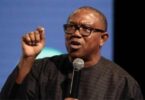Vice President Kashim Shettima has said that implementing the Nigeria Energy Transition would not be easy, hence, it requires the collaboration of local and international partners to source funds and prepare the Nigeria workforce.
Speaking at the Energy Transition Symposium in abuja, organized by the Development Agenda Magazine, the Vice President who was represented by the Special Adviser to the President on Power and Infrastructure, Sadiq Wanka, said the Energy Transition Plan in Nigeria balances the need for Nigeria to rapidly industrialize and develop and the need to address critical environmental challenges that are not just a distant concept, but an immediate reality.
Shettima however noted that the present administration has already made a number of notable interventions within its first year in office, he said in February 2024, the President signed three executive orders as part of the Government’s commitment to make Nigeria a destination of choice for oil and gas investments.
“These included specific tax credit incentives for the development of greenfield non-associated gas fields. Only projects that are developed by January 2029 are eligible for announced incentives, aligning with the country’s plan to rapidly develop gas assets before beginning to taper development. The other two executive orders pertain to ensuring that local content requirements do not hamper investments and that contracting costs and timelines are brought in line with global best practice (reducing contracting cycles by 4 to 6 times).
He, therefore, noted “but full implementation of the Nigeria Energy Transition would not be easy. It requires concerted effort locally and international collaboration to source financing and to prepare the Nigerian workforce for a Net-Zero economy and to have a truly just energy transition.
“If we take the issue of financing alone, funding the energy transition requires investments of over $10 billion per year up to 2060. Majority of this money would necessarily come from the private sector including through initiatives to access high -integrity carbon markets. But we are up to the challenge. The administration of President Ahmed Tinubu is willing to take the difficult decisions and the rich resource base and depth of human capital in our dear country will ensure our success”
In his goodwill message, the Governor of Kaduna State, Uba Sani said Nigeria needs the delivery of affordable, reliable, and sustainable energy for homes and businesses for growth and development.
Governor Sani who was represented by the Managing Director of Kaduna Power Supply Company (KAPSCO), Engr. Idris Aminu Idris said he believes that subnational governments have a key role to play in achieving this – with a three-way collaboration between the Federal Government, the State Governments, and the private sector in attaining a sustainable energy practice.
The symposium will explore factors and opportunities for mitigating the expected negative effects of government’s energy transition programmes on Nigerians, including how to ensure that impacted communities are helped and how to secure justice for residents of those communities.
ALSO READ THESE TOP STORIES FROM TheWitness







